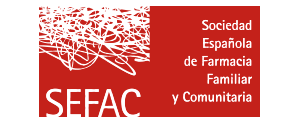University certificate
Scientific endorser

The world's largest faculty of pharmacy”
Introduction to the Program
Improve your knowledge in Nutritional Counseling in Community Pharmacy through this program, where you will find the best didactic material with real clinical cases. Find out about the latest advances in the speciality here, in order to be able to carry out quality clinical practice”

One of these services is related to the field of Nutrition and to developing dietary recommendations. Today there is ample evidence on the importance of proper nutrition for the prevention and/or treatment of chronic diseases, such as cardiovascular diseases, type 2 diabetes mellitus and cancer, among others.
With more nutritional supplements becoming available to users, it is of vital importance that community pharmacists have the necessary training to dispense and advise on these products in an appropriate way, to give good nutritional advice and, when necessary, know when to make a referral to the appropriate professional. Although traditionally, several subjects related to bromatology, nutrition, food and food hygiene have been taught in the Bachelor's Degree in Pharmacy, more specific training is required in order to be able to advise users on the food products dispensed in pharmacies, as well as on their interaction with medicines.
For this reason, designing and delivering scientific and professional theoretical and practical training in nutrition at university level is necessary.
This Professional master’s degree covers various current concepts in nutrition that can be used in a community pharmacist’s daily work.
Update your knowledge through the Professional master’s degree in Nutritional Counseling in Community Pharmacy”
This Professional master’s degree in Nutritional Counseling in Community Pharmacy comprises the most complete and up-to-date scientific program on the market. The most important features include:
- Development of over 50 clinical cases presented by experts in Nutritional Counseling in Community Pharmacy
- Its graphic, schematic and eminently practical contents, which are designed to provide scientific and assistance information on those disciplines that are essential for professional practice
- Contains practical exercises where the self-evaluation process can be carried out to improve learning
- An algorithm-based interactive learning system for decision-making in the clinical situations presented throughout the course
- Its special emphasis on evidence-based medicine and research methodologies in Nutritional Counseling in Community Pharmacy
- All of this will be complemented by theoretical lessons, questions to the expert, debate forums on controversial topics, and individual reflection assignments
- Availability of content from any fixed or portable device with internet connection
This Professional master’s degree is the best investment you can make in selecting a refresher program to update your knowledge in Nutritional Counseling in Community Pharmacy”
Its teaching staff includes professionals belonging to the field of pharmacy, who contribute their work experience to this training, as well as renowned specialists from reference societies and prestigious universities.
The multimedia content, developed with the latest educational technology, will provide the professional with situated and contextual learning, i.e., a simulated environment that will provide immersive training programmed to train in real situations.
This program is designed around Problem Based Learning, whereby the professional must try to solve the different professional practice situations that arise during the academic year. To do so, the professional will be assisted by a innovative interactive video system created by renowned and experienced experts in Nutritional Counseling in Community Pharmacy.
Increase your confidence in decision-making by updating your knowledge through this Professional master’s degree”

Take the opportunity to learn about the latest advances in Nutritional Counseling in Community Pharmacy and improve your customer service”
Why study at TECH?
TECH is the world’s largest online university. With an impressive catalog of more than 14,000 university programs available in 11 languages, it is positioned as a leader in employability, with a 99% job placement rate. In addition, it relies on an enormous faculty of more than 6,000 professors of the highest international renown.

Study at the world's largest online university and guarantee your professional success. The future starts at TECH”
The world’s best online university according to FORBES
The prestigious Forbes magazine, specialized in business and finance, has highlighted TECH as “the world's best online university” This is what they have recently stated in an article in their digital edition in which they echo the success story of this institution, “thanks to the academic offer it provides, the selection of its teaching staff, and an innovative learning method aimed at educating the professionals of the future”
A revolutionary study method, a cutting-edge faculty and a practical focus: the key to TECH's success.
The most complete study plans on the university scene
TECH offers the most complete study plans on the university scene, with syllabuses that cover fundamental concepts and, at the same time, the main scientific advances in their specific scientific areas. In addition, these programs are continuously being updated to guarantee students the academic vanguard and the most in-demand professional skills. In this way, the university's qualifications provide its graduates with a significant advantage to propel their careers to success.
TECH offers the most comprehensive and intensive study plans on the current university scene.
A world-class teaching staff
TECH's teaching staff is made up of more than 6,000 professors with the highest international recognition. Professors, researchers and top executives of multinational companies, including Isaiah Covington, performance coach of the Boston Celtics; Magda Romanska, principal investigator at Harvard MetaLAB; Ignacio Wistumba, chairman of the department of translational molecular pathology at MD Anderson Cancer Center; and D.W. Pine, creative director of TIME magazine, among others.
Internationally renowned experts, specialized in different branches of Health, Technology, Communication and Business, form part of the TECH faculty.
A unique learning method
TECH is the first university to use Relearning in all its programs. It is the best online learning methodology, accredited with international teaching quality certifications, provided by prestigious educational agencies. In addition, this disruptive educational model is complemented with the “Case Method”, thereby setting up a unique online teaching strategy. Innovative teaching resources are also implemented, including detailed videos, infographics and interactive summaries.
TECH combines Relearning and the Case Method in all its university programs to guarantee excellent theoretical and practical learning, studying whenever and wherever you want.
The world's largest online university
TECH is the world’s largest online university. We are the largest educational institution, with the best and widest online educational catalog, one hundred percent online and covering the vast majority of areas of knowledge. We offer a large selection of our own degrees and accredited online undergraduate and postgraduate degrees. In total, more than 14,000 university degrees, in eleven different languages, make us the largest educational largest in the world.
TECH has the world's most extensive catalog of academic and official programs, available in more than 11 languages.
Google Premier Partner
The American technology giant has awarded TECH the Google Google Premier Partner badge. This award, which is only available to 3% of the world's companies, highlights the efficient, flexible and tailored experience that this university provides to students. The recognition as a Google Premier Partner not only accredits the maximum rigor, performance and investment in TECH's digital infrastructures, but also places this university as one of the world's leading technology companies.
Google has positioned TECH in the top 3% of the world's most important technology companies by awarding it its Google Premier Partner badge.
The official online university of the NBA
TECH is the official online university of the NBA. Thanks to our agreement with the biggest league in basketball, we offer our students exclusive university programs, as well as a wide variety of educational resources focused on the business of the league and other areas of the sports industry. Each program is made up of a uniquely designed syllabus and features exceptional guest hosts: professionals with a distinguished sports background who will offer their expertise on the most relevant topics.
TECH has been selected by the NBA, the world's top basketball league, as its official online university.
The top-rated university by its students
Students have positioned TECH as the world's top-rated university on the main review websites, with a highest rating of 4.9 out of 5, obtained from more than 1,000 reviews. These results consolidate TECH as the benchmark university institution at an international level, reflecting the excellence and positive impact of its educational model.” reflecting the excellence and positive impact of its educational model.”
TECH is the world’s top-rated university by its students.
Leaders in employability
TECH has managed to become the leading university in employability. 99% of its students obtain jobs in the academic field they have studied, within one year of completing any of the university's programs. A similar number achieve immediate career enhancement. All this thanks to a study methodology that bases its effectiveness on the acquisition of practical skills, which are absolutely necessary for professional development.
99% of TECH graduates find a job within a year of completing their studies.
Professional Master's Degree in Nutritional Counseling in Community Pharmacy
In a fast-paced world, where sometimes the management of procedures to access a consultation with a specialist becomes a complex medical advice. It is common for patients to become autonomous and turn to close and trusted personnel, such as pharmacist assistants. One of the most recurrent visits in this regard concerns food-related issues. Seeing this as a development challenge and an opportunity for professional growth, TECH Global University presents its Professional Master's Degree in Nutritional Counseling in Community Pharmacy, a detailed look at the work of the nutritionist, but incorporated into the space of the conventional pharmacist. There are numerous utilities that you can acquire through this program, from an orientation in breastfeeding, to the legislation of food supplements. All encompassed with a 100% online methodology that will allow you to regulate your own schedule and balance learning with other personal activities, without losing academic rigor. Take the next step in your vocation and improve your professional growth.
Learn about nutritional counseling in pharmacy
It was Anthelme Brillat-Savarin, author of the first treatise on gastronomy "Physiology of Taste" in 1825, who said: "Tell me what you eat and I will tell you who you are". Francis VI, Duke of La Rochefoucauld, said: "Eating is a necessity, but eating intelligently is an art". Today, these premises are not only still valid, but there is a growing tendency to incorporate them as a rule within healthy habits. Proof of this is that, in regions such as Latin America, the sale of dietary supplements in 2019 generated 2748 million dollars, growing by almost 50% since 2014, while, in countries such as Spain, according to a report by the Spanish Academy of Nutrition and Dietetics, 75% of the inhabitants consume some type of nutritional supplement. This represents substantial profits to the pharmacies that sell them, but also suggests the need to train integral and qualified personnel who can guide people about their consumption. With our Professional Master's Degree, you will be able to master this field, thereby increasing your ability to provide a first class service and distinguish yourself from the rest.







